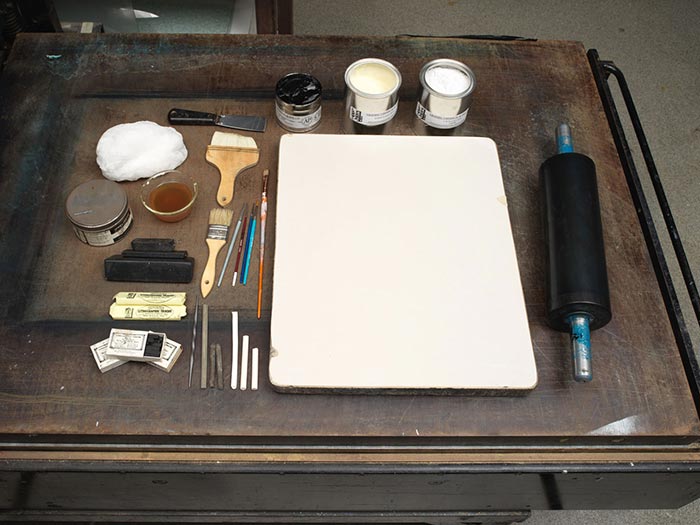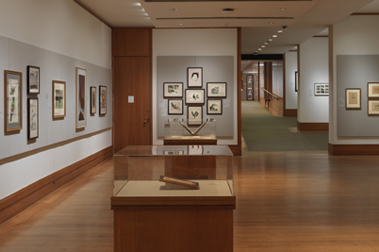Spoiling a Sensation: The Bicycle Boy on a Bull
Thomas B. Worth American
Publisher Currier & Ives American
Not on view
The late nineteenth-century Darktown prints by Currier & Ives depict racist stereotypes that are offensive and disturbing. The Metropolitan Museum of Art preserves such works to shed light on their historical context and to enable the study and evaluation of racism.
In this print, a terrified Black man (African American)--his head poked through a twisted penny-farthing bicycle frame entangled in a raging bull's horns-- is carried on the huge bull's back as it charges towards the left, trailing puffs of dust. The caricatured, open-mouthed man wears a red jersey shirt, yellow pants, blue/white striped socks and brown shoes. In the right background, another Black man, who is splattered with paint, hops and raises his arms in amusement. Behind him, a robed figure, standing beside a donkey, views the scene. A grill fence stretches across the entire background. The print's title is imprinted in the bottom margin. Also see the companion print, "Creating a Sensation" (Peters 197; Gale 1424; Metropolitan Museum of Art accession no. 52.632.107).
Nathaniel Currier, whose successful New York-based lithography firm began in 1835, produced thousands of prints in various sizes that together create a vivid panorama of mid-to-late nineteenth century American life and its history. People eagerly acquired such lithographs featuring picturesque scenery, rural and city views, ships, railroads, portraits, hunting and fishing scenes, domestic life and numerous other subjects, as an inexpensive way to decorate their homes or business establishments. As the firm expanded, Nathaniel included his younger brother Charles in the business. In 1857, James Merritt Ives (the firm's accountant since 1852 and Charles's brother-in-law) was made a business partner; subsequently renamed Currier & Ives, the firm continued until 1907. The artist of this print is Thomas Worth, a prolific nineteenth-century illustrator who excelled at drawing horses and other subjects, many of which were made into lithographs published by Currier & Ives.

